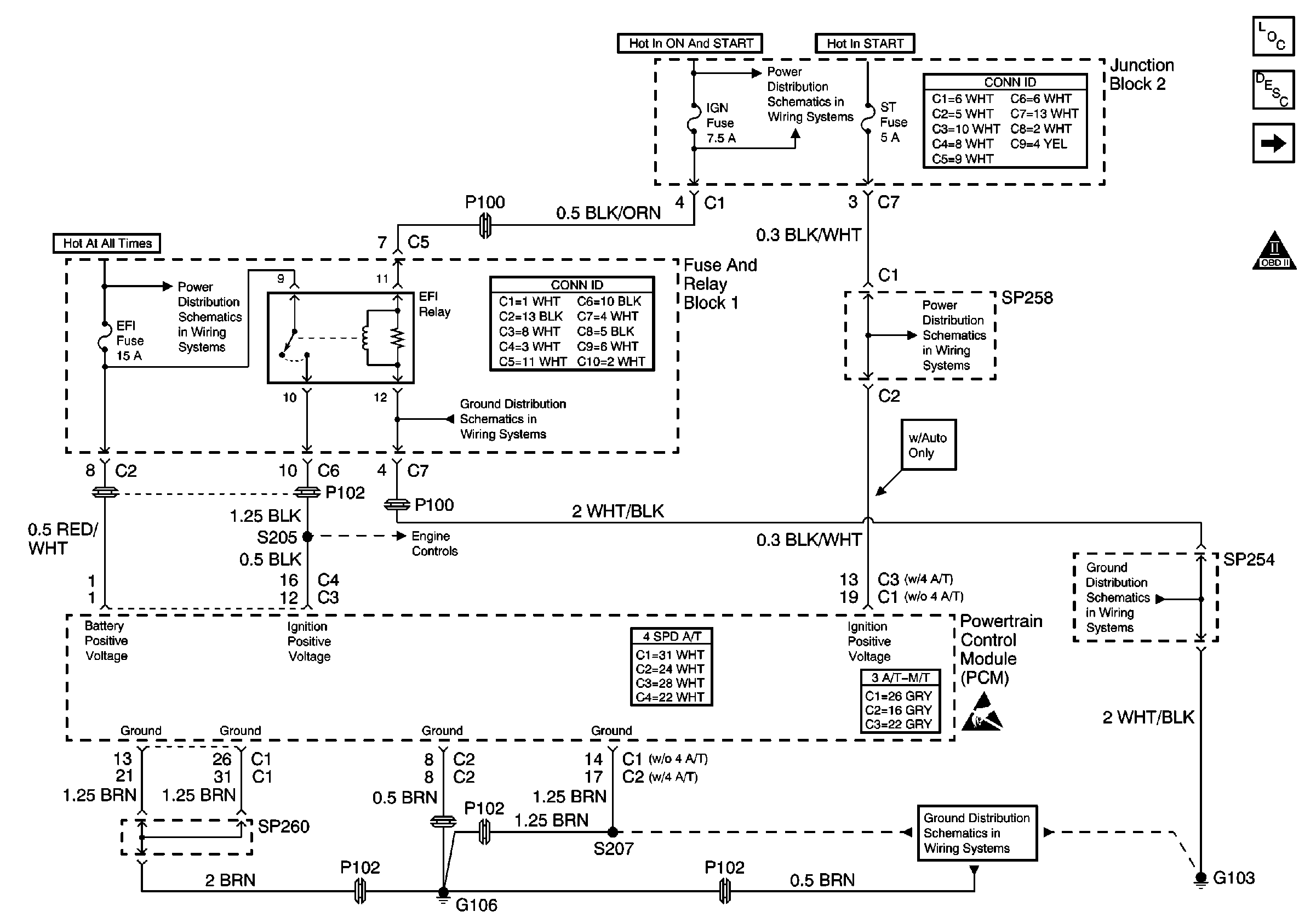Surges and/or Chuggles Symptom
Checks
| Action
|
DEFINITION: The engine has a power
variation under a steady throttle or cruise. The vehicle feels as if it speeds
up and slows down with no change in the accelerator pedal.
|
Preliminary Checks
|
| • | Be sure the driver understands the A/C compressor operation. |
| • | Use a scan tool to make sure the reading of the vehicle speed
sensor (VSS) matches the reading of the instrument panel speedometer. Transmission
performance can be affected by incorrect VSS readings. If accuracy of the
VSS is a concern, refer to
Instrument Cluster System Check
. |
|
Sensor Checks
|
| • | Check the heated oxygen sensors' (HO2S 1 and HO2S 2)
performance. Refer to the Diagnostic Aids for DTCs P0130 through P0141. |
| • | Check for correct operation of the mass air flow (MAF) sensor.
Inspect the sensor housing and the surrounding air cleaner assembly for obstructions. |
| • | Check for correct operation of the engine coolant temperature
(ECT) sensor. A fixed or inaccurate ECT sensor reading can cause the engine
to surge, especially at low speeds and at stops. |
|
Fuel System Checks
|
| • | Determine if a rich or lean system can cause the condition. Drive
the vehicle at the speed of the complaint. Monitoring the Fuel Trim may help
identify the problem. |
| - | Lean -- The Long Term Fuel Trim will be more than 20 percent.
Refer to Diagnostic Aids. |
| - | Rich -- The Long Term Fuel Trim will be less than -20 percent.
Refer to Diagnostic Aids. |
| • | Check the fuel injectors. Perform the following procedures: |
|
Ignition System
Checks
|
| • | Check for the proper secondary voltage output with a J 26792
spark tester. |
|
Additional Checks
|
| • | Check the PCM grounds for being clean, tight, and in the proper
locations. Refer to
Power and Ground

. |
| • | Check the generator output voltage. |
| • | Check the vacuum lines and hoses for kinks or leaks. |
|

